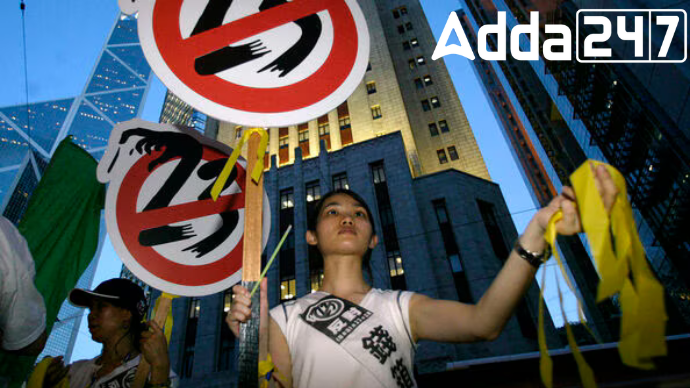Hong Kong has introduced a new national security law draft. The proposed legislation, covering treason, espionage, and external interference, signifies a significant increase in state authority in the region. This development arises amidst a wider crackdown on dissent, resulting in pro-democracy figures being imprisoned or exiled.
The Draft
- Introduces stricter penalties for various offenses.
- Legal analysts highlight broad definitions, particularly regarding sedition and state secrets.
- Chief Executive John Lee urges swift approval due to geopolitical complexities and national security risks.
International Response
- European Union and United States express grave concerns.
- EU emphasizes worries about extraterritorial reach and potential impact on external interference.
- U.S. State Department calls for public consultation and safeguards.
Rights Provisions and Investor Concerns
- Acknowledges human rights and freedoms but raises caution among investors and business leaders.
- Rushing the legislation could further erode individual rights and alienate the business community.
- Concerns persist over broad definitions of crimes, potentially affecting businesses with foreign ties.
Challenges to Freedoms
- Critics argue recent measures undermine Hong Kong’s status as a hub for business, academia, and media.
- Officials claim alignment with laws in Western nations, citing necessity for national security.
- Critics fear suppression of dissent and restriction of freedom of expression.
Broader Context
- Proposed law follows China’s efforts to enhance national security.
- Coincides with broader initiatives by Chinese lawmakers for new security legislation.
- If passed, the bill grants extended powers to authorities, including prolonged detention without charge and limited legal representation.




 Geneva to Host AI Summit 2027 & UAE ...
Geneva to Host AI Summit 2027 & UAE ...
 India-Brazil Seal 10 Big Deals: A New Po...
India-Brazil Seal 10 Big Deals: A New Po...
 AI Impact Summit 2026 Concluded As 89 Na...
AI Impact Summit 2026 Concluded As 89 Na...








